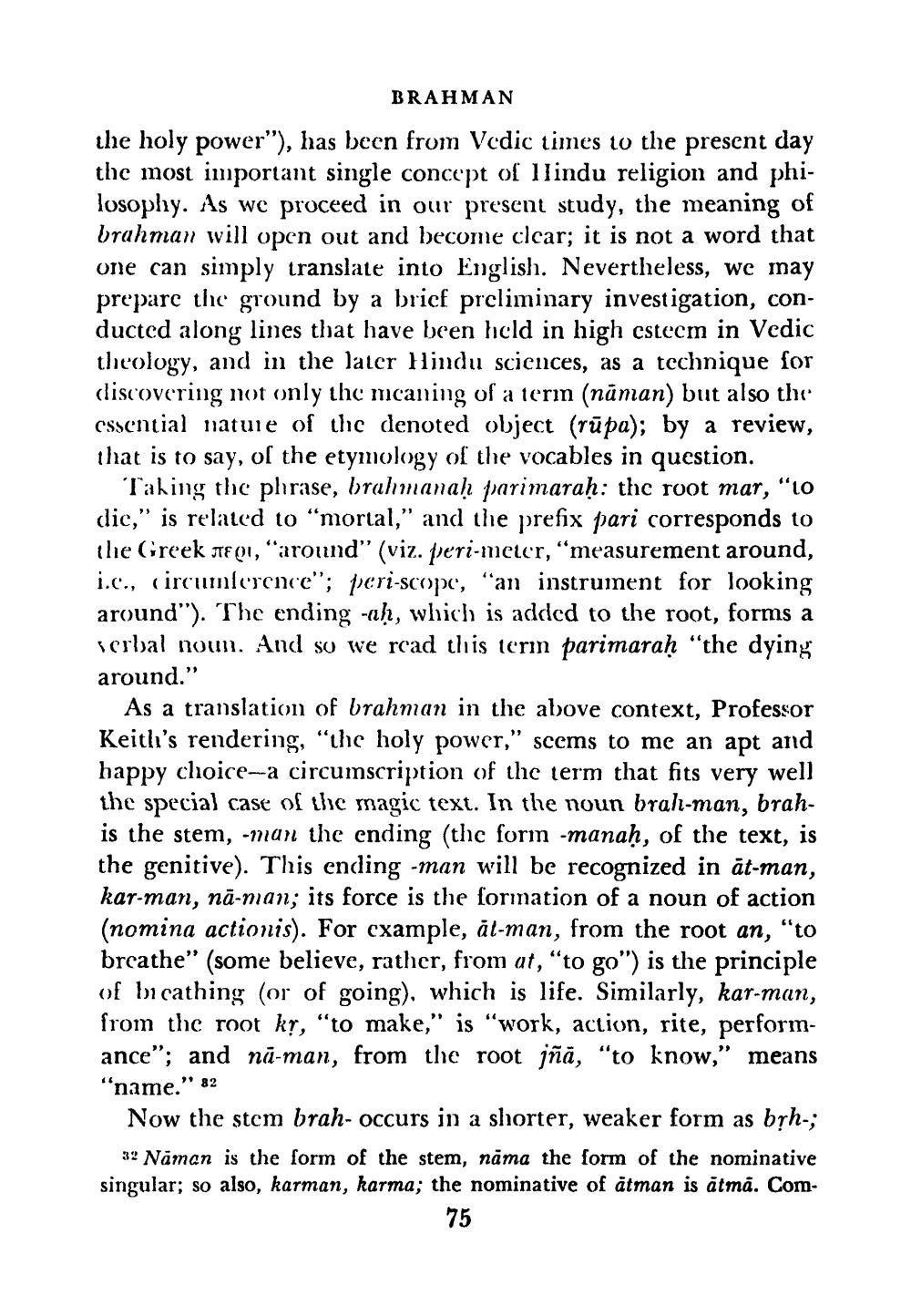________________
BRAHMAN
the holy power"), has been from Vcdic times to the present day the most important single concept of llindu religion and philosophy. As we proceed in our present study, the meaning of brahman will open out and become clcar; it is not a word that one can simply translate into English. Nevertheless, we may prepare the ground by a brief preliminary investigation, conducted along lines that have been held in high estecm in Vedic theology, and in the later Hindu sciences, as a technique for discovering not only the mcaning of a verin (nāman) but also the essential nature of the denoted object (rūpa); by a review, that is to say, of the etymology of the vocables in question.
Tahing the phrase, brahmanaḥ parimaraḥ: the root mar, "lo dic," is related to "mortal," and the prefix pari corresponds to the Greek TE Q1, "around” (viz. peri-meter, “measurement around, i.c., circumference"; peri-scope, “an instrument for looking around"). The ending -ah, which is added to the root, forms a serbal nou. And so we read this terin parimaraḥ "the dying around."
As a translation of brahman in the above context, Professor Keithi's rendering, "the holy power," seems to me an apt and happy choice-a circumscription of the term that fits very well the special case of the magic text. In the noun bral-man, brahis the stem, -man the ending (thc forin -manaḥ, of the text, is the genitive). This ending -man will be recognized in āt-man, kar-man, nā-man; its force is the formation of a noun of action (nomina actionis). For example, ål-man, from the root an, "to breathe" (some believe, rather, from at, “to go") is the principle of bicathing (or of going), which is life. Similarly, kar-man, from the root kĩ, “to make,” is "work, action, rite, performance"; and nā-man, from the root jñā, "to know," means "name." 82
Now the stem brah- occurs in a shorter, weaker form as brh.; 3? Naman is the form of the stem, nama the form of the nominative singular; so also, karman, karma; the nominative of atman is átmā. Com
75




